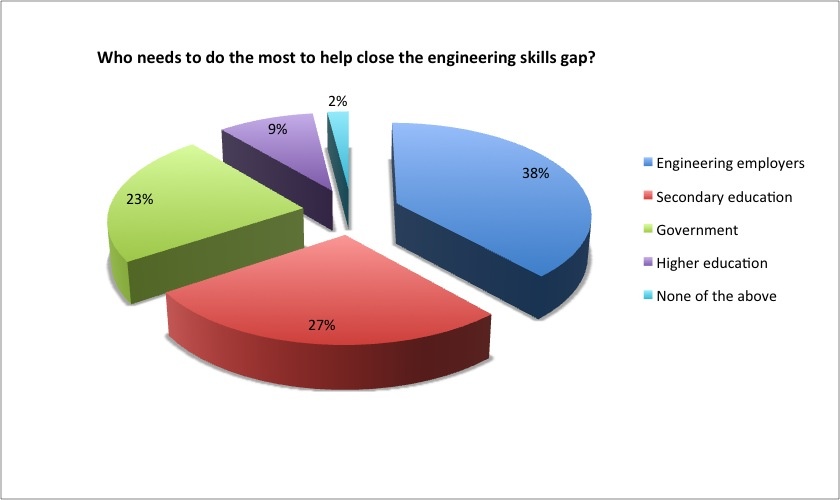On the back of this year’s Status of Engineering report, released by EngineeringUK last week, we asked our readers who had the biggest responsibility for addressing the skills gap. It’s a longstanding and multifaceted issue, and one that requires coordination from all sides, but we wanted people to make a call on who they felt should lead the skills charge and drive engineering forward in the UK.

Just under 40 per cent of respondents thought the buck should stop with engineering employers, with this option topping the poll. The next most popular response was secondary education (27 per cent), reflecting the widespread belief that a passion for engineering and other STEM subjects needs to be cultivated from a relatively early age. In contrast, just 9 per cent of readers felt that higher education had the most important role to play in plugging the skills gap.
Finally, just under a quarter (23 per cent) of you think government needs to be the primary actor. There is never any shortage of voices in government decrying the shortfall of engineers in the UK, yet it seems that little ever changes. It’s a problem we’ve been covering for many years, and one that we’ll no doubt return to in the future.





Glasgow trial explores AR cues for autonomous road safety
They've ploughed into a few vulnerable road users in the past. Making that less likely will make it spectacularly easy to stop the traffic for...